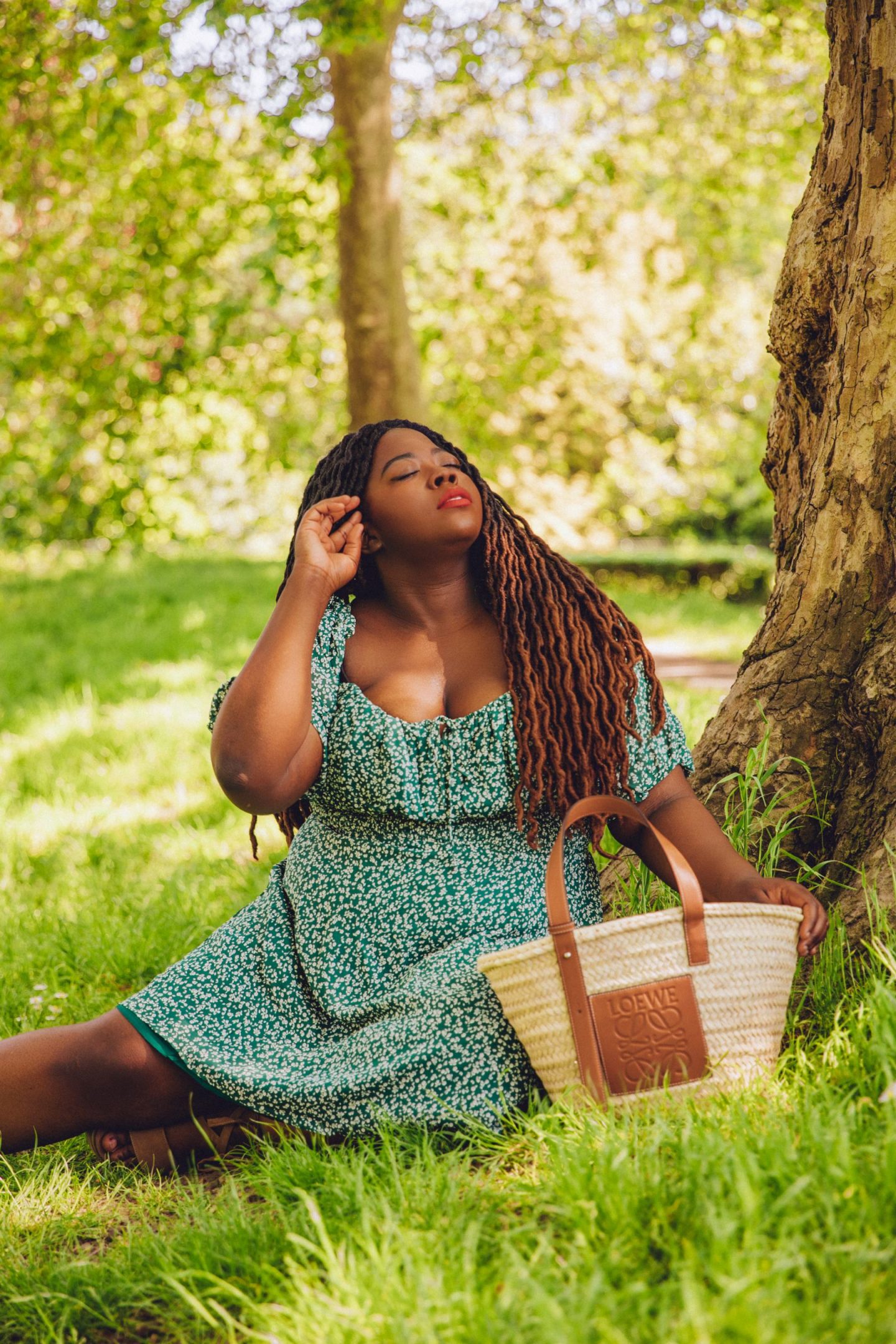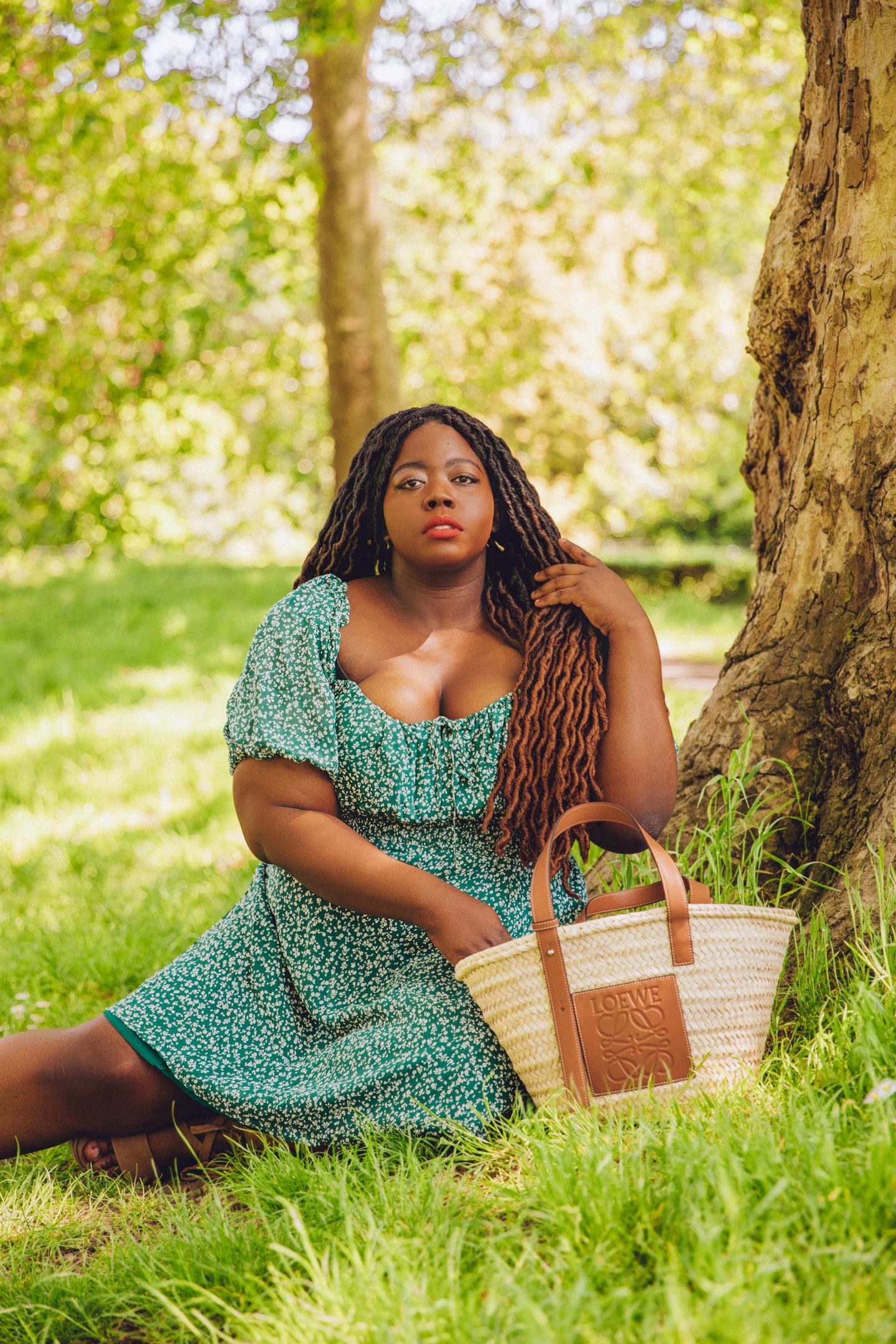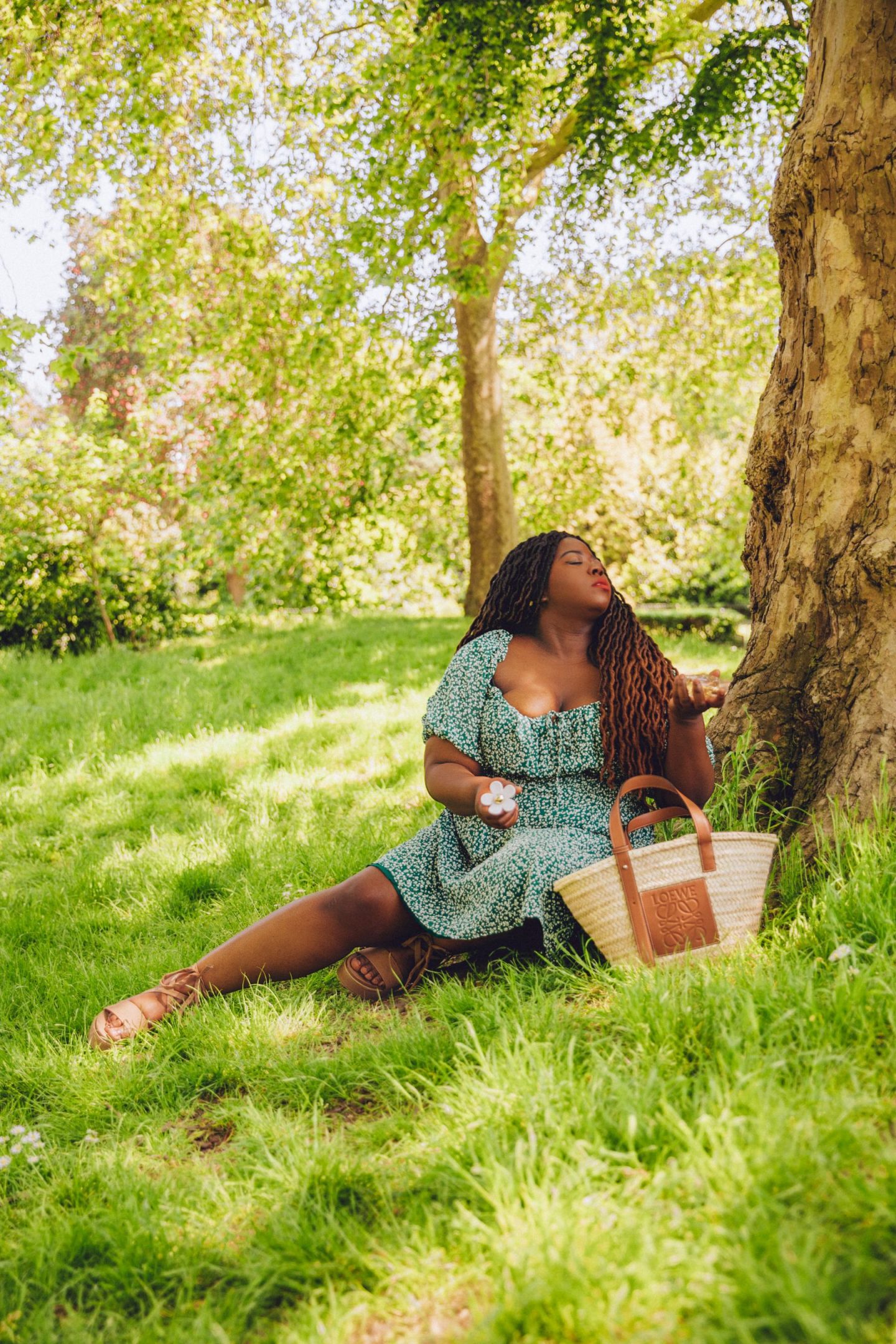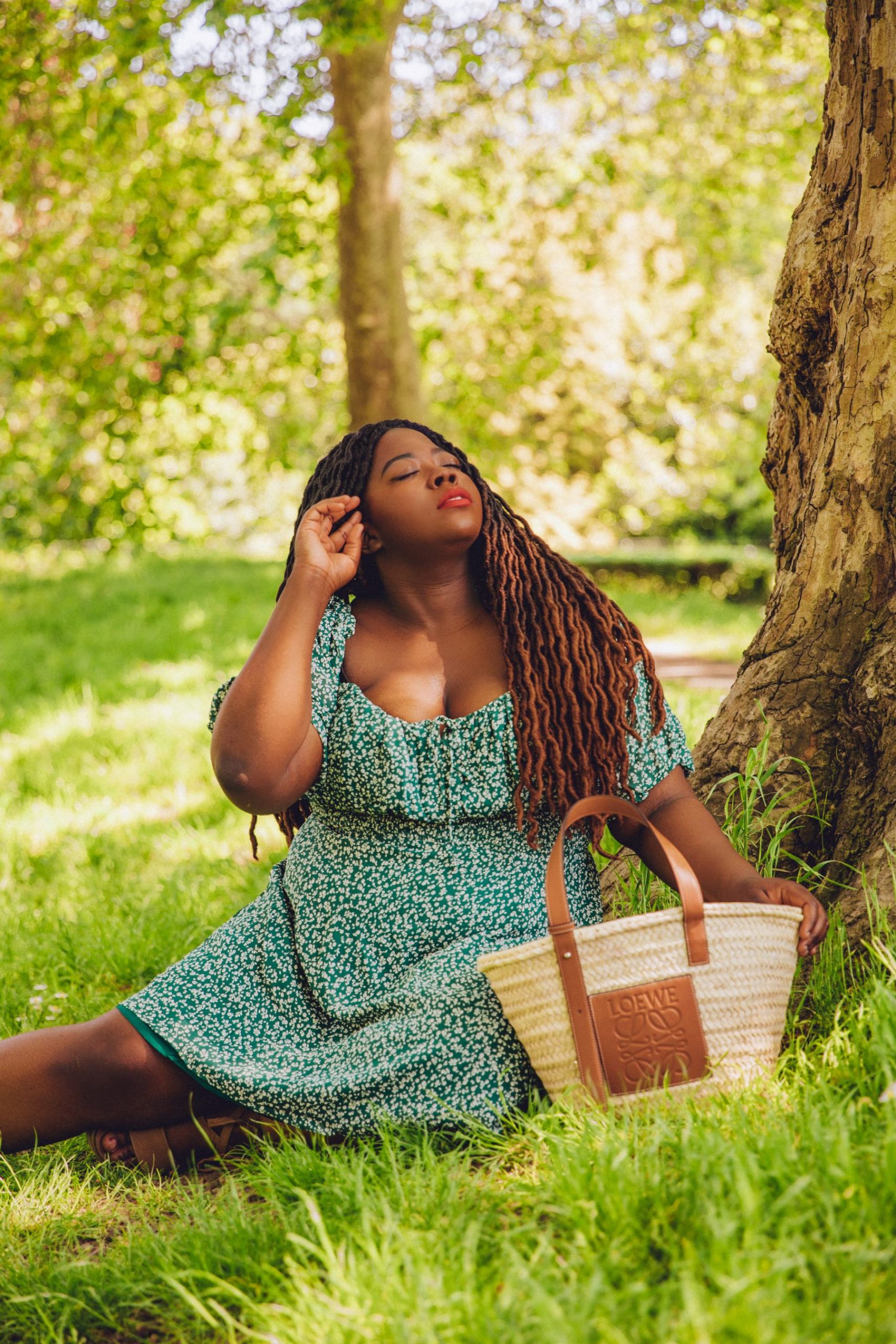[Trigger warning: baby loss]
I knew that I wanted to be a Mother at the age of 18.
Coming from a large African family, the perceived importance of ‘having as many kids as possible, as young as possible’ is a narrative that has been embedded into the minds of daughters across the Diaspora for centuries now. While I can’t deny that ‘family duty’ has definitely played a part in my quest for wanting a family of my own in the past, there is something about being able to bring something beautiful that I created into this world to raise and love and watch them go out into the world, that has always excited me. The prospect of being able to create something perfect; someone to love unconditionally.

I’ve always been incredibly maternal, and being a Mother has always been my primary goal of mine, which stands to reason why the prospect of finding out that I could be infertile or to experience baby loss would be one of my greatest fears. A few years ago, it looked as if the possibility of Motherhood would potentially be on the horizon for me as I was in a long-term relationship and things seemed to be going well. A couple of months before the end of that relationship I found out I was pregnant and in those precious moments of staring at that pregnancy test, it was like the stars came out. I remember feeling momentarily unsteady on my feet due to the shock of it all. I cried and cried for hours in disbelief of what I was seeing. Moi?! A whole Mum you know. There weren’t enough adjectives to convey my sheer delight at the news. A trip to the Doctor confirmed I was already 10 weeks gone.
Unfortunately around 10 days after the confirmation, that joy was cut short as I lost the baby. An event that I have successfully been able to suppress and keep to myself for the most part until now. While I don’t feel the need to go into all the details about what happened, in that moment I felt like an absolute failure. I felt as if I had failed the Boss Level of Womanhood. Of course we know that being a mother isn’t the be-all-and-end-all of being a woman. We know that we as women were not put on this earth for the sole functioning of ‘breeding’, but in those moments of loss, I do admit feeling like I had failed as a woman and that because of that, I perhaps was less of a woman. I hated my body for failing me.
From that moment on, even though I had received no confirmations from the gynaecologist or had undertaken any examinations, I was convinced that i was infertile. Knowing that my weight could have potentially had an impact on losing the baby (even though there was no evidence at the time to confirm this) further solidified this notion of infertility, as we know that weight can sometimes affect pregnancy.
Losing the baby for me meant losing all hope. I grieved privately for years while suppressing the news, refusing to tell anyone for fear of me eventually having a nervous breakdown. My greatest fear had come true and that – coupled with the eventual breakup – filled me with an immense amount of pain and heartbreak that couldn’t be dealt with all at once. So I decided to compartmentalise loss and focus on grieving the end of the relationship as out of the two, it seemed the easiest to deal with emotionally.

For years I existed in a pit of self-hate; angry, hurt, heartbroken and furious with my body for taking away the one thing I had always wanted. I decided that I was probably never meant to have children, and so I allowed my mind to deeply internalise that narrative and go along with the idea that I was infertile.
The narrative only strengthened when I discovered I had Fibroids that same year. After being taken to hospital with excruciating pain, I was told that not only do I have 6 orange-sized fibroids, but that one of them was sitting on my ovary, and another had ruptured, which was the cause of the pain. I was told the usual things doctors say to plus size women in those moments: “it’s your weight”, “maybe you should lose weight”, “you can have a hysterectomy to remove the fibroids but you’d need to lost 8 stone first”, “if you lose weight, you’ll feel better etc”. I don’t know why I didn’t bring up the subject of my alleged infertility then, but in those moments all I could hear was “your fat body is the main and only reason why your reproductive system is so shit – you should feel embarrassed of yourself.”
Thus the shame continued. It felt like I had nothing to live for anymore, so what was the point in anything? What was the point in dating or getting to know someone? Or getting a mortgage? Or saving? It was an incredibly warped way of thing and retrospectively, I now see that I was living for motherhood and nothing else. Every fibre in my being was focused on the fact that I believed that I was unable to have children because I didn’t deserve them, and up until a few months ago it was a huge emotional burden that I had been carrying around for years that kept me from living.
The Fertility Test
Thinking back, I’m not sure why I didn’t do this sooner, but I decided to take a fertility test so that I could at least ‘confirm’ my suspicion about my supposed infertility. I suppose I had convinced myself that I was because the thought of having hope was something that I didn’t want. The thought of the unknown for me has always been scary and I suppose that deep down, in order to control my feelings regarding my greatest fear in advance, I wanted to be able to shut down any notions of me being fertile so that I could in some way, carry on living my life without the painful notions of hope and uncertainty floating around me forever.
I made an appointment at the London Women’s Clinic in London Bridge back in March and after filling out a hefty medical and lifestyle form, I was all booked in. The process consisted of two parts: the tests, and the subsequent consultation a week after in which the test results would be revealed. To say that I was shitting a brick would be the understatement of the year. I arrived at the clinic and underwent a very thorough pelvic exam (also known as a transvaginal exam) where the nurse was able to get a look at my ovaries and uterus.
I didn’t allow my eyes to leave her face, as I stared at her for any impending glances of uncertainty or worry on her otherwise impassive face. “ahh yes, you’ve got some fibroids here, do you wanna have a look?” she asks kindly. I started at the fibroids dotted around my uterus and suddenly burst into tears, hating my body yet again for allowing these foreign tumours to invade my uterus and robbing me of the opportunity to bear children. The nurse was kind and showed a lot of empathy, before telling me that the fibroid on my uterus was actually harmless and did/would not affect fertility in any way.
I won’t lie. 0.01% of the shadow that had set up shop in my heart did break away upon hearing that. After the test was done, I took a blood test and went on my way to await my fate. A week later I was called by the consultant gynaecologist and was in my living room by my desk, pen and paper in hand, taking breath once every 30 seconds, and heart hammering against my chest like a hummingbird’s’ wing . This was it. I just *knew* I was about to get the confirmation I had suspected all along.
“Your anti-mullerian blood test came up normal, which means you have a high ovarian egg reserve. Your ovaries are also normal and healthy. The fibroid on your ovary is fine where it is, meaning it’s not affecting your ovary or egg production as it’s a tiny one so don’t worry about that. If you were looking to have kids, I would probably say that you have until around 39/40 before you start making serious decisions but for now, you have loads of healthy, good eggs. You’re not infertile.”
Again, I allowed the tears to flow. It wasn’t the news I was expecting to hear and just like that, the dark cloud that had been encased around my heart had lifted, just like that. I felt light. I felt somewhat new. There was something a bit shady about how surprised the doctor sounded when delivering the news to me however, as if surprised that someone as big as me could be fertile. As if all fat women were incapable of having kids. Of course being a doctor, I understand that he felt he had a duty to tell me about my weight and how that could impact things if I ever were to become pregnant, but the assumptions and tone of his voice were incredibly fatphobic and weren’t appreciated.
Disclaimer:
I WANT TO ADD THAT THE FERTILITY TEST IS AN INDICATOR OF WHAT YOUR FERTILITY IS LIKE AT THE TIME OF TAKING THE TEST. IT DOESN’T INDICATE THE FAR FUTURE, AND OF COURSE ENVIRONMENTAL AND MEDICAL FACTORS CAN ALWAYS AFFECT YOUR FERTILITY DESPITE THE RESULT.
THE TEST IS NOT AN INDICATOR OF WHETHER YOU CAN GET PREGNANT IN FUTURE. IT SIMPLY TELLS YOU YOUR FERTILITY STATUS AND WHETHER YOU HAVE A LOW/HIGH EGG RESERVE. i AM AWARE THAT THERE ARE LOADS OF OUTSIDE FACTORS THAT COULD CHANGE MY RESULT, HOWEVER i WANTED TO EXPRESS MY GRATITUDE AND JOY IN THAT MOMENT THAT HOPE WAS NOT ALL LOST FOR ME.
Since March, my priorities have changed.
Do I still want children in the future? Of course. But I no longer have the cloud of hopelessness surrounding me, neither do I feel the need to have to rush myself. I am practising more kindness and patience towards myself these days, and am trying to live more in the moment. I know that even if I never find a partner, I still have options to conceive naturally and when the time comes where I feel ready to conceive, I can make the necessary adjustments and preparations for it ahead of time. I finally feel a sense of control in my future and in my body again which means I can concentrate on the things I want to achieve in life career and lifestyle-wise without feeling like I need to rush myself. I am learning how to live in the present more instead of constantly having one eye on the future. I’m learning how to take care of my body better, in the hopes that one day it’ll be able to house a mini-me of my own.

June 25, 2021
Steph
How Getting a Fertility Test Allowed Me To Be Kinder to Myself
